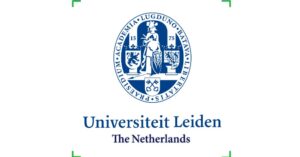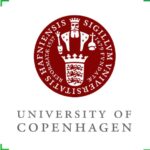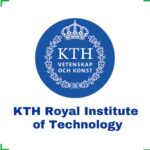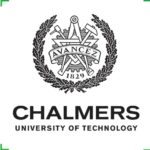Are you holding Master’s degree and ready to elevate your academic journey to the highest level? Leiden University, Netherlands, has announced a multiple fully funded PhD positions awaiting talented individuals like you. Don’t miss your chance to be part of our vibrant academic community. Explore the exciting PhD positions available and submit your application today!”
Candidates interested in fully funded PhD positions can check the details and may apply as soon as possible.
(01) Fully Funded PhD Position
PhD position summary/title:–PhD position: ultrafast broadband-THz spectroscopy of perovskite materials
The Faculty of Science Leiden and Leiden Institute of Chemistry are looking for a PhD candidate in experimental ultrafast spectroscopy.
Metal-halide perovskites (MHP) are optically active materials, which hold great promise as light-absorber (e.g. in photovoltaic devices and photodetectors) and as light-emitter (e.g. in LEDs). The material is both ionic and soft, meaning that electrons strongly ‘talk’ to the vibrations in the lattice. These lattice vibrations have frequencies in the 0-5 THz range and are thus thermally active at room temperature, meaning that the material is in a constant state of vibrational motion, which acts a source of dynamic disorder. This disorder is poorly understood, and can localize electrons on short length- and time scales.
Within this project, we aim to understand the motion of photoexcited electrons in MHPs within the framework of dynamic disorder. To this end, you will construct and use an optical-pump/broadband-THz probe spectrometer, with which we can probe the frequency-resolved photoconductivity on timescales spanning picoseconds to nanoseconds. You will work in a recently founded group which focuses on both advanced (nano)materials development and ultrafast spectroscopy.
Deadline : 13 October 2024
(02) Fully Funded PhD Position
PhD position summary/title:– monocytogenes
Listeria monocytogenes is a food-born pathogen, able to grow at both low and high temperatures, and causes a serious food poisoning called listeriosis even from properly refrigerated foods. The European Food Safety authority (ESFA) has identified L. monocytogenes as one of three most serious food hazards to public health. Under anaerobic conditions, L. monocytogenes can transfer electrons out of the cell to redox balance its fermentative metabolism. It has been shown that this extracellular electron transport (EET) is important for survival and virulence of L. monocytogenes and hence the proteins involved in EET provide a promising target space for new antibiotics.
In this PhD project, the candidate will join a friendly, creative and interdisciplinary research team that studies the molecular mechanisms of bacterial respiration and develops novel antibiotics. The PhD student will learn and apply a range of biochemical and biophysical approaches to discover the molecular pathway of electron transfer in L. monocytogenes and select inhibitors against selected proteins of this pathway to validate EET as a potential antibiotic target. Besides the cloning, expression and purification of key proteins in the EET pathway, the candidate will develop activity assays to confirm hypothesized functions in oxidoreduction and membrane transport, and use single-particle cryoEM to elucidate the molecular structure, mode of action and inhibition. These results will provide the necessary foundation for future antibiotic development.
The Faculty of Science Leiden and Leiden Institute of Chemistry are looking for a PhD in Targeting the electron transport chain in Listeria monocytogenes for novel antibiotic development
Deadline : 15 January 2025
View more Fully Funded PhD Positions Click Here
(03) Fully Funded PhD Position
PhD position summary/title:– PhD candidate (1,0 FTE) in Central Asian (Tarim Basin) Palaeography
In “Patterns of writing” it is to be investigated how the Indic Brāhmī and Kharoṣṭhī scripts have spread to the non-Indic languages of the Tarim Basin, how they had to be adapted, and how script varieties have influenced each other. The goal is to trace a web of contacts between the Tarim Basin languages based on the script that does not necessarily match the linguistic web of contacts exactly. The comparative analysis of the two scripts and their variants will also help decide several issues in the interpretation of the sound systems of the Tarim Basin languages.
Deadline : 30 September 2024
(04) Fully Funded PhD Position
PhD position summary/title:– PhD candidate (1,0 FTE) in Ancient Central Asian (Tarim Basin) Contact Linguistics
In “Sogdian and Bactrian wanderers”, the linguistic influence of the Middle Iranian languages Sogdian and Bactrian in the Tarim Basin is to be investigated systematically. Both languages are not native to the Tarim Basin, but were extremely influential, as evidenced by many loanwords and names. It is known that Sogdian was spread by Sogdian traders, who also settled in different places throughout the Tarim Basin. Bactrian was the language of the Kuṣānas, but it is not well understood how exactly it reached into the Tarim Basin. While Sogdian and Bactrian influence in Tocharian is recognised, no systematic investigation exists. Although similar influence is to be expected in Khotanese, little research has been done on the topic.
Deadline : 30 September 2024
(05) Fully Funded PhD Position
PhD position summary/title:– PhD candidate in South-American comparative linguistics and anthropology
The Descriptive and Comparative Linguistics group at the Leiden University Center for Linguistics invites applicants for a PhD position in South-American comparative linguistics and anthropology. The main task of the PhD candidate will be to reconstruct, to the extent possible, the socio-historical processes that have led to the current and past distributions of languages and language attributes in South America, by taking an areal-typological approach, combined with regionally informed qualitative contextualization. The project is carried out in close cooperation with another PhD project at the University of Utrecht, which focuses on the role of the biophysical environment in shaping patterns of diversity. Tasks include data collection from written sources, database curating, both quantitative and qualitative analysis.
The project (https://www.universiteitleiden.nl/en/research/research-projects/humanities/evolution_linguistic_diversity_south_america) is funded by the NWO (Open Competition L grant). In the context of this project we offer a unique chance to work in a truly multi-disciplinary context, which gives you the possibility to expand your horizon to other disciplines, cooperate with experienced scholars, and contribute to creating new knowledge about the history of South America. We furthermore offer close supervision and support in developing, operationalizing, and presenting your ideas.
Deadline :6 October 2024
(06) Fully Funded PhD Position
PhD position summary/title:– PhD candidate for End-to-End Causal Learning (1.0fte)
Causal inference is one of the primary goals in empirical sciences, including medicine, biology, economy, and physical science. For instance, researchers may seek to estimate the effects of smoking on lung cancer, education on salaries, or specific genes on phenotypes. If we have only access to observational data, a part of causal relations among the variables can be recovered, and hence, the investigator is commonly left with some (or in some cases many) unresolved causal relations. On the other hand, if we can perform experiments in the system, the causal graph representing the underlying system can be fully recovered from sufficient number of interventions. However, in many practical cases, performing each intervention might take days to complete or be too costly.
In this project, we aim to develop an end-to-end framework for the task of causal inference. This framework comprises three main components: causal discovery, identification analysis, and experiment design. The causal discovery part learns a causal model of the environment from the available data. This model is then used in the identification analysis to get an estimate of the causal effect. If the estimation is not accurate, a limited number of experiments are performed through the experiment design part to enhance knowledge about the underlying system, thereby improving the accuracy of causal effect estimation. This project combines techniques from statistics, graphical model learning, and stochastic optimization, embracing an interdisciplinary approach.
The candidate will be embedded in the Explanatory Data Analysis group at the Leiden Institute of Advanced Computer Science. More information about the group can be found at https://eda.liacs.nl/
Deadline : 16 October 2024
Connect with Us for Latest Job updates
(07) Fully Funded PhD Position
PhD position summary/title:– PhD candidate for the StorytimeLM project
Language models (LMs) are one of the pillars of the “generative turn” in AI and have revolutionised how we think about language processing in machines. Following evidence that capabilities scale with size, we have seen a trend towards ever bigger models in terms of parameters and training data size, which has led to a number of concerns including energy consumption and the impossibility of checking immensely large datasets for such crucial factors as information quality and copyright. In this project we research whether using narrative data for pre-training language models can help to make them smaller and more versatile.
Deadline : 11 October 2024
(08) Fully Funded PhD Position
PhD position summary/title:– 2 PhD Candidates to study transcription factor binding at the single-molecule level
We are looking for ambitious and enthusiastic PhD candidates with a strong background in biophysics, molecular biology, biochemistry, or quantitative biology. Previous experience with single-molecule force spectroscopy and or fluorescence, protein purifications or in vitro eukaryotic transcription assays is advantageous. The candidates should be creative, independent, and have a problem-solving attitude. Good communication skill and the ability to work in a multi-disciplinary team are essential.
Deadline : 30 November 2024
(09) Fully Funded PhD Position
PhD position summary/title:– PhD position in Social Anthropology
The project, ‘Futuring Heritage: Conservation, Community and Contestation in the Eastern Himalayas’, led by Dr. Erik de Maaker, funded by a grant from the Dutch Research Council (NWO), is looking for a PhD candidate for research in Sikkim (India). The project is hosted by Leiden University’s Institute of Cultural Anthropology & Development Sociology, with Ashoka University in Delhi-NCR as its prime academic partner. The PhD will be jointly supervised by Dr. Erik de Maaker (Leiden) and Dr. Swargajyoti Gohain (Ashoka). The Futuring Heritage project consortium encompasses international organisations, Indian governmental agencies, several NGOs as well as a tourism operator active in the eastern Himalayas.
Futuring Heritage investigates how national and international/ governmental and non-governmental programmes aimed at environmental conservation and climate change adaptation in the eastern Himalayas can align with the cultural expectations of the region’s ethnolinguistic minorities. While such programmes are typically presented as ‘community-led’, they often adopt a condescending stance towards residents’ traditional usages of forests, rivers and mountain slopes, which are cultural practices, rooted in the past. Rural Himalayan livelihoods as well as schemes intended to halt deforestation and sustain biodiversity encompass heritage, either authorised, neglected or unseen. Yet, such activities also anticipate time to come, an intentionality the project innovatively conceptualises as ‘futuring’. This project researches futuring pertaining to usages and perceptions of land, developing new spatial methodologies that integrate satellite imagery with ethnographic sensorial mapping. It explores acts of futuring with reference to spatiality and temporality that reveal how heritage, ontology, indigeneity and governance are essential dimensions of socially and culturally inclusive environmental conservation. To address this issue, the project enables ethnographic research across three sub-projects, all located in the eastern Himalayas of India, and thus sharing the same national context.
This PhD position supports ethnographic research in the Indian state of Sikkim, which is often considered an example of successful community-led environmental conservation. In 2016, Sikkim achieved the status of being the first ‘fully organically producing’ state of India and its Khangchendzonga National Park (KNP) became a UNESCO World Heritage site in the mixed category, recognised for both its cultural as well as natural heritage values. This has altered the way stakeholders interact with each other, in line with differences in how they perceive and value the mountain range and the forests covering its slopes. How does the ‘recognised’ and ‘authorised’ worthiness of a place as World Heritage influence the restriction, alteration and initiation of both human and non-human residents’ access to the farmlands and forests surrounding it, and have implications in terms of situated ritual practices and rural livelihood strategies and the heritagised resources these encompass?
Deadline :1 October 2024
(10) Fully Funded PhD Position
PhD position summary/title:– PhD candidate, Feature-based machine learning for precision diagnosis of neuromuscular diseases
Neuromuscular disorders, which affect millions of people in Europe alone, lead to (progressive) muscle weakness or sensory deficits that gravely affect life expectancy and quality of life. To diagnose the disorders, needle electromyography (nEMG) data must be assessed audio-visually by experts, which is subjective and time-consuming.
In this project, experts in computer science and clinical neurophysiology will collaborate with a commercial partner to develop an artificial-intelligence platform integrating feature-based and deep learning approaches to automatically, objectively and accurately interpret nEMG data to improve the diagnosis of neuromuscular disorders ensuring explainability and responsible AI practices. Researchers of this project will validate the method using real nEMG data from around the world and take first steps towards integrating the platform into the existing software for clinical use. This position offers a unique opportunity to contribute to the cutting-edge research that will significantly impact the clinical landscape of neuromuscular disorders.
More specifically, the PhD researcher employed in this position will build on the earlier collaboration between LIACS and Leiden University Medical Center which has produced a smaller study yielding promising preliminary results using a feature-based automated classification pipeline. In the later stages of the project, the researcher will investigate the hybridisations of her/his approach with the deep learning techniques to improve the diagnostic yield.
Deadline :22 September 2024
View Postdoc Positions Click Here
About Leiden University, Netherlands : Official Website
Leiden University (abbreviated as LEI;Dutch: Universiteit Leiden) is a public research university in Leiden, Netherlands. It was founded as a Protestant university in 1575 by William, Prince of Orange, making it the oldest institution of higher education in the Netherlands.
Known for its historic foundations and emphasis on the social sciences, the university came into particular prominence during the Dutch Golden Age, when scholars from around Europe were attracted to the Dutch Republic due to its climate of intellectual tolerance. During this time, Leiden became the home to individuals such as René Descartes, Rembrandt, Christiaan Huygens, Hugo Grotius, Baruch Spinoza, and Baron d’Holbach.
The university has seven academic faculties and over fifty subject departments, housing more than forty national and international research institutes. Its historical primary campus consists of buildings in multiple places in the college town of Leiden, while a second campus located in The Hague houses a liberal arts college (Leiden University College The Hague) and several of its faculties. It is a member of the Coimbra Group, the Europaeum, and a founding member of the League of European Research Universities.
The university has produced twenty-six Spinoza Prize Laureates and sixteen Nobel Laureates. Members of the Dutch royal family such as Queen Juliana, Queen Beatrix, and King Willem-Alexander are alumni, and ten prime ministers of the Netherlands including incumbent Mark Rutte. US President John Quincy Adams also studied at the university.
Disclaimer: We try to ensure that the information we post on JobPetal.com is accurate. However, despite our best efforts, some of the content may contain errors. You can trust us, but please conduct your own checks too.
Related Posts
- 14 Fully Funded PhD Positions at University of Helsinki, Finland
- 29 Fully Funded PhD Positions at University of Copenhagen, Denmark
- 30 Fully Funded PhD Positions at ETH Zurich, Switzerland
- 16 Fully Funded PhD Positions at Technical University of Denmark (DTU), Denmark
- 21 Fully Funded PhD Positions at KTH Royal Institute of Technology, Stockholm, Sweden
- 19 Fully Funded PhD Positions at Umea University, Sweden
- 21 Fully Funded PhD Positions at Uppsala University, Sweden
- 23 Fully Funded PhD Positions at Chalmers University of Technology, Gothenburg, Sweden
- 18 Fully Funded PhD Positions at Karolinska Institute, Sweden
- 11 Fully Funded PhD Positions at Stockholm University, Sweden
- 22 Fully Funded PhD Positions at Lund University, Scania, Sweden
- 10 Fully Funded PhD Positions at Utrecht University, Netherlands












